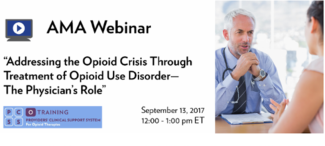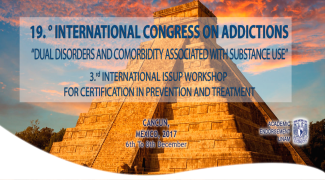Applying interventions designed to reduce and manage the symptoms of substance use disorders.
Treatment
Effectiveness of Optional Videoconferencing-Based Treatment of Alcohol Use Disorders
Transcranial Magnetic Stimulation of Dorsolateral Prefrontal Cortex Reduces Cocaine Use
Efficacy and Safety of High-Dose Baclofen for the Treatment of Alcohol Dependence
Webinar: Addiction and Medication-Assisted Treatment - Promoting Truth and Avoiding Bias
On Thursday, September 28th from 2:30 to 3:30pm ET join Nick Szubiak, MSW, Director of Clinical Excellence in Addictions at the National Council for Behavioral Health for Addiction and Medication-Assisted Treatment – Promoting Truth and Avoiding Bias.

Effectiveness Bank Drug Treatment Matrix Cell B1: The Practitioner in Harm Reduction
Multimorbidity in Patients Enrolled in a Community-Based Methadone Maintenance Treatment Programme Delivered through Primary Care
Webinar: Addressing the Opioid Crisis through Treatment of Opioid Use Disorder-The Physician’s Role
This program focuses on harms from opioid-type medications, the development and fundamental features of opioid use disorder, and how physicians can play a key role in reversing what has been called the “opioid epidemic” through evidence-based treatment of opioid use disorder. Sarah E.

19th International Congress on Addictions: "Dual Disorders and Comorbidity Associated with Substance Use"
In recent years, it has become evident that in order to better understand the phenomenon of psychoactive substance use and its implications for physical and mental health, a multidimensional approach is necessary, since there are many and varied aspects involved in the consumption of psychoactive substances and the development of addictions.
